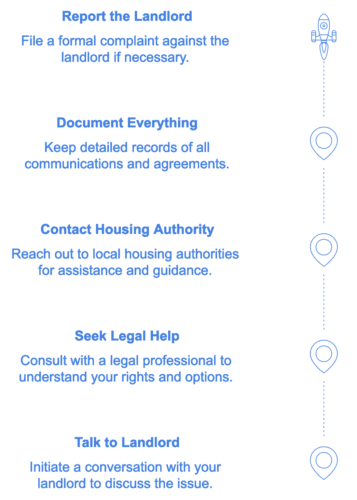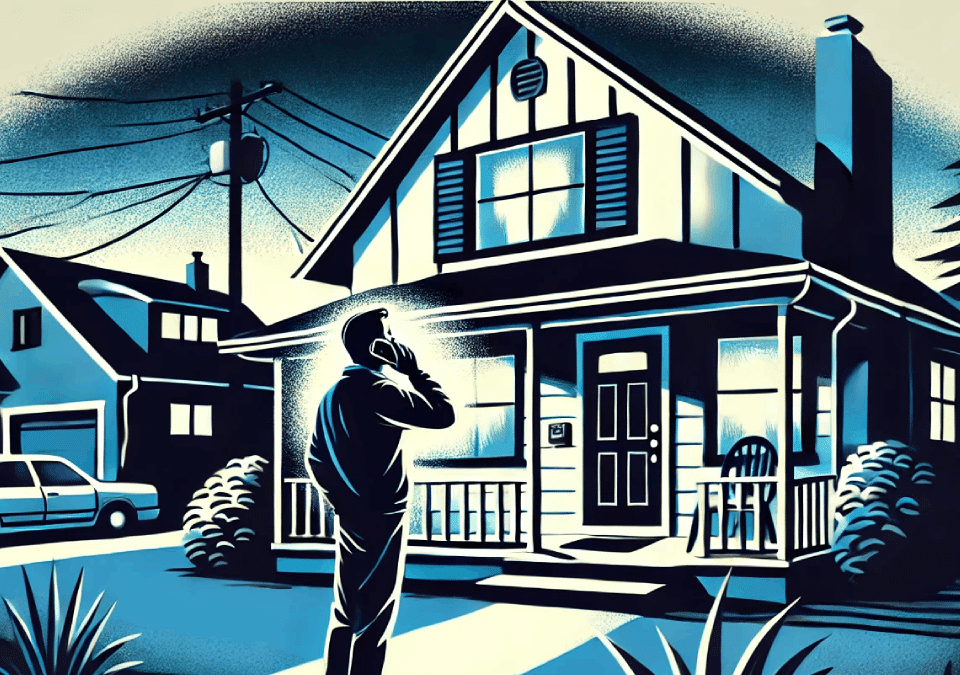
How Scammers Use Fake Real Estate Agents
January 8, 2023Scam-Proofing Your Rental Application: Steps to Take
February 28, 2023Renting a home can be a stressful process, and it becomes even more challenging when you’re faced with a rental agreement that doesn’t seem right. Illegal rent agreements are unfortunately common, and they can lead to big problems for tenants. Understanding how to spot and avoid illegal agreements can save you from financial loss and potential legal issues.
In this article, we’ll explain what makes a rent agreement illegal, how to avoid signing one, and what steps to take if you think you’re dealing with an unlawful rental contract. You’ll also learn how using resources like Section 8 Shield can help protect you from illegal agreements.
What Makes a Rent Agreement Illegal?
A rent agreement is a legal document between a tenant and a landlord that outlines the terms of the rental. However, not all agreements are lawful. Illegal rent agreements can come in different forms, and it’s important to understand what makes an agreement invalid or illegal.
Here are some common issues that can make a rent agreement illegal:

- Discrimination Clauses
Any agreement that discriminates against tenants based on race, religion, gender, nationality, disability, or family status is illegal. The Fair Housing Act protects tenants from this type of discrimination. For example, if your lease includes a clause that says the landlord will not rent to families with children, it’s a violation of the law. - Unlicensed Landlords
In some cities and states, landlords are required to have a license to rent out property. If your landlord doesn’t have the proper licensing or permits, the agreement may be considered illegal. - Illegal Clauses
Any clause in your lease that violates state or federal law is illegal. This can include clauses that try to waive your legal rights as a tenant, such as denying your right to a safe living environment or allowing the landlord to enter your apartment without proper notice. - Unclear Terms
A valid rental agreement must include clear and specific terms. If the contract is vague or missing essential details—like the rent amount, due dates, or lease length—it can be considered illegal. - Verbal Agreements
In many states, rental agreements must be in writing to be enforceable, especially if the lease is for a year or more. Verbal agreements, while sometimes legally binding, can lead to disputes and confusion, making them risky for tenants.
How to Spot an Illegal Rent Agreement
Recognizing the signs of an illegal rent agreement can help you avoid serious problems down the line. Here are some red flags to look out for when reviewing a lease:
| Unusual or Excessive Fees | Some landlords may try to include illegal fees in the rent agreement, such as charging extra for standard repairs or routine maintenance that should be covered by the landlord. If the agreement lists excessive fees or deposits, take a closer look. |
| Waiving Tenant Rights | If the lease asks you to give up certain legal rights—like the right to a safe living space, proper eviction procedures, or fair rent increases—it’s a sign that the agreement may be illegal. Landlords cannot force you to waive your basic tenant rights. |
| No Written Lease | If the landlord insists on a verbal agreement or refuses to give you a written lease, this is a major red flag. Having a written lease is essential for protecting both you and the landlord. Without one, there’s no formal record of the rental terms, which can lead to disputes and potential legal issues. |
| Unlicensed Rentals | In areas where landlords are required to have a license to rent, be sure to verify whether your landlord has the necessary documentation. Renting from an unlicensed landlord could mean the lease is not legally enforceable. |
How to Avoid Illegal Rent Agreements
Now that you know what makes a rent agreement illegal, here’s how to avoid signing one:
- Research State and Local Laws
Before signing any rental agreement, familiarize yourself with your state and local housing laws. Different states have different rules regarding what must be included in a lease and what landlords can and cannot do. Knowing your rights ahead of time can help you spot illegal terms. - Carefully Read the Lease
Don’t just skim the lease—read it thoroughly. Make sure all the terms are clear and that nothing seems out of the ordinary. Pay close attention to sections about fees, repairs, rent increases, and notice periods. If something doesn’t look right, ask questions or seek legal advice. - Check for Illegal Clauses
Look for any clauses that might violate your rights as a tenant. For example, if the lease says the landlord can enter your apartment without notice, that’s typically illegal. Most states require landlords to provide at least 24 hours’ notice before entering your rental, except in emergencies. - Get Everything in Writing
Never rely on verbal promises. If the landlord makes any agreements with you—such as covering certain repairs or allowing you to make changes to the apartment—make sure these are included in the written lease. Verbal agreements are hard to prove if something goes wrong. - Verify the Landlord’s Credentials
In some areas, landlords need a license to rent out property. You can check with your city or state housing authority to see if your landlord is registered. Renting from an unlicensed landlord can cause problems if the agreement is challenged in court. - Know Your Tenant Rights
Educate yourself on your rights as a tenant. For example, you have the right to a habitable living environment, protection from illegal eviction, and a fair rent. Websites like Section 8 Shield provide useful resources to help you understand tenant rights in your area. - Use Trusted Resources
Before signing a lease, check with trusted sources like Section 8 Shield to see if the landlord or property management company has a history of complaints or legal issues. Scammers often operate under the radar, so doing a little research can help you avoid trouble. - Consult Legal Help if Necessary
If you’re unsure about the legality of a rental agreement, it’s worth consulting a housing lawyer or tenants’ rights organization. They can review the lease and help you spot any illegal clauses or practices. It’s better to invest in legal help upfront than deal with the consequences of signing an illegal lease.
What to Do if You’ve Signed an Illegal Rent Agreement
If you’ve already signed a lease and now realize it contains illegal terms, don’t panic. Here’s what you can do:

- Talk to Your Landlord
In some cases, landlords might not realize their agreements are illegal. Try discussing the issue with your landlord to see if they are willing to amend the lease. Point out the specific clauses that are illegal and ask for a new version of the agreement with legal terms. - Seek Legal Help
If your landlord refuses to make changes or if the illegal terms are causing problems, you may need to seek legal assistance. A housing lawyer can help you understand your options and take action if necessary. - Contact Your Local Housing Authority
Some areas have local housing authorities or tenants’ rights organizations that can provide support. They may offer free legal advice or help you file a formal complaint against your landlord. - Document Everything
Keep a record of all communications with your landlord, especially if you’re dealing with an illegal agreement. Having a paper trail will help if you need to take legal action or present evidence in court. - Report the Landlord
If you believe your landlord is knowingly using illegal rental agreements, you can report them to your local housing authority. In some cases, landlords can face fines or other penalties for breaking rental laws.
How Section 8 Shield Can Help
Navigating the rental process can be overwhelming, especially when you’re worried about signing an illegal rent agreement. That’s where Section 8 Shield comes in. Our website offers a wealth of information on housing scams, tenant rights, and how to protect yourself from illegal agreements.
With our tools, you can:
- Verify whether a landlord or property management company is legitimate.
- Learn about your rights as a tenant, so you know when a lease is crossing legal lines.
- Report illegal agreements or housing scams, helping others avoid the same pitfalls.
Section 8 Shield is here to help you stay informed and make safe housing decisions.
Conclusion
Illegal rent agreements can cause serious problems for tenants, but you don’t have to fall into the trap. By knowing your rights, doing your research, and carefully reviewing any rental agreement, you can avoid signing an illegal lease. Remember to always use trusted resources like Section 8 Shield to verify landlords and property listings before committing.
If you’ve already signed an illegal agreement, don’t hesitate to take action. Whether it’s talking to your landlord, seeking legal help, or filing a complaint, there are steps you can take to protect yourself. Stay informed, stay cautious, and ensure your next rental agreement is 100% legal.




